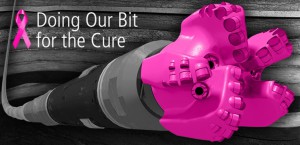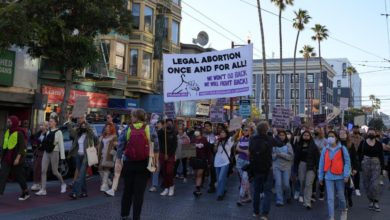
A few days ago a co-worker approached me. She needed to talk to me about something—and it wasn’t related to work. It turns out she had found a lump in her breast and was awaiting the results of a biopsy. This 38-year-old mother of two was nearly in tears as she wondered what might happen if the biopsy showed she had cancer.
She turned to me because she knows that I survived breast cancer treatment a little more than a year ago. I was able to give her a realistic sense of what to expect if it turned out she did have cancer. I am glad I was able to share my knowledge and experience with her to help ease her mind.
Consciousness raising versus ‘awareness’
When I was young, Betty Ford made headlines by publicly discussing her diagnosis and treatment. Her act of disclosure made it OK for women to talk to each other about things like finding a lump and going to get checked out. In the spirit of the times of Second Wave feminism, Ford was “raising consciousness” by speaking out about her own experience with a disease that was killing women, yet we weren’t even supposed to talk about it. Betty Ford broke the silence, broke the taboo on discussing a cancer that affects a part of the body that many think of in a sexualized way. Nice ladies weren’t supposed to talk about their breasts. And being silent was killing women who postponed getting their lumps checked out until it was too late.
Today, we have Breast Cancer Awareness Month every October. Have we come a long way, baby?
Almost everyone knows someone who has had or has breast cancer. It is one of the more frequently occurring forms of cancer. And today, it is totally OK to say the words “Breast Cancer” out loud and in public. In fact, for the rest of this month, there will be no escaping the bombardment of breast cancer awareness. From the National Football League wearing pink cleats to Ford Motor Company, to bottled water to …you name it, everwhere you look, a company has jumped on the breast cancer pink ribbon bandwagon.
So, isnt’ this a good thing? More awareness is good, right?
Breast Cancer Action, a group that bills itself as the watchdog of the breast cancer industry says on its website:
It’s Breast Cancer Industry Month and the pink floodgates have opened. And again we ask: what have all these pink ribbon products and promotions done for women living with and at risk of breast cancer?
How pink ribbons hurt rather than help the fight against breast cancer
Whether sexualizing and trivializing breast cancer (“Save the ta-tas!”), promoting misinformation, allowing corporations to profit from appearing to care about breast cancer, even putting pink ribbons on products known to cause cancer—pink ribbons promote empty “awareness” that denies the reality of the breast cancer epidemic and does nothing to promote true health justice for women.
One of the biggest outrages of Breast Cancer Awareness Month is the way that corporations implicated in cancer-causing products can “pinkwash” themselves, ducking out of responsibility for their role in causing cancer while profiting from breast cancer “awareness.” One particularly egregious example is the partnership between Susan G. Komen Foundation (remember when they cut funding for mammograms for poor women that were being provided by Planned Parenthood?) and oil drilling and fracking company Baker Hughes. Yup, Baker Hughes is painting fracking drill bits PINK to “raise awareness” about breast cancer. Meanwhile, workers engaged in fracking have been found to have dangerously high levels of benzene—a known human carcinogen—in their urine
Benzene exposure is known to induce breast cancer in laboratory animals and is modestly associated with breast cancer among women. But the best evidence we have for the benzene-breast cancer link comes from studies of young male workers exposed on the job. Male breast cancer is clearly linked to occupational exposure to benzene. (ecowatch.com)
About my friend at work? It turned out she does not have cancer. I was very happy for her.






